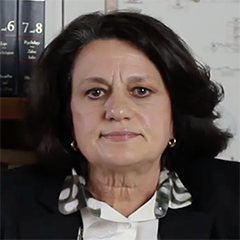You are not currently logged in. Please create an account or log in to view the full course.
Life and Works
- About
- Transcript
- Cite
Political Ideas – Mary Wollstonecraft
This course explores the political ideas of Mary Wollstonecraft and may be particularly useful for those studying the Core Political Ideas component of the AQA and Edexcel Government and Politics A Level specifications. While she is best known as an early feminist, Dr Sylvana Tomaselli asks us here to instead consider Wollstonecraft in context as a key Enlightenment philosopher and moralist. We begin with an exploration of Wollstonecraft’s life and early works, before moving on in the second lecture to consider Burke’s ‘Reflections’ (1790) as key context for Wollstonecraft’s political ideas. We then turn in the third lecture to Wollstonecraft’s polemical ‘Vindication of the Rights of Men’ (1790), highlighting her critique of Burke – another named thinker under Core Political Ideas: Conservatism – and arguments concerning property. In the fourth lecture, we explore Wollstonecraft’s ‘Vindication of the Rights of Woman’ (1792), emphasising that, despite its title, this work is not only concerned with women. Instead, the second Vindication posits an ambitious political project: full moral revolution. Finally, in the fifth lecture, we make the case for reading Wollstonecraft on her own terms. Here, we engage directly with the problem of applying contemporary -isms to political thinkers.
Life and Works
In this module, we explore the life and early works of Mary Wollstonecraft, focusing in particular on: (i) her time with the Kingsborough family and views of the aristocracy; (ii) her early works, including ‘Thoughts on the Education of Daughters’ (1787) and ‘Mary: A Fiction’ (1788); (iii) her translation works and other intellectual contributions; (iv) her concern with women’s education.
Cite this Lecture
APA style
Tomaselli, S. (2022, March 22). Political Ideas – Mary Wollstonecraft - Life and Works [Video]. MASSOLIT. https://massolit.io/courses/political-philosophy-mary-wollstonecraft/political-ideas-wollstonecraft-and-isms
MLA style
Tomaselli, S. "Political Ideas – Mary Wollstonecraft – Life and Works." MASSOLIT, uploaded by MASSOLIT, 22 Mar 2022, https://massolit.io/courses/political-philosophy-mary-wollstonecraft/political-ideas-wollstonecraft-and-isms

